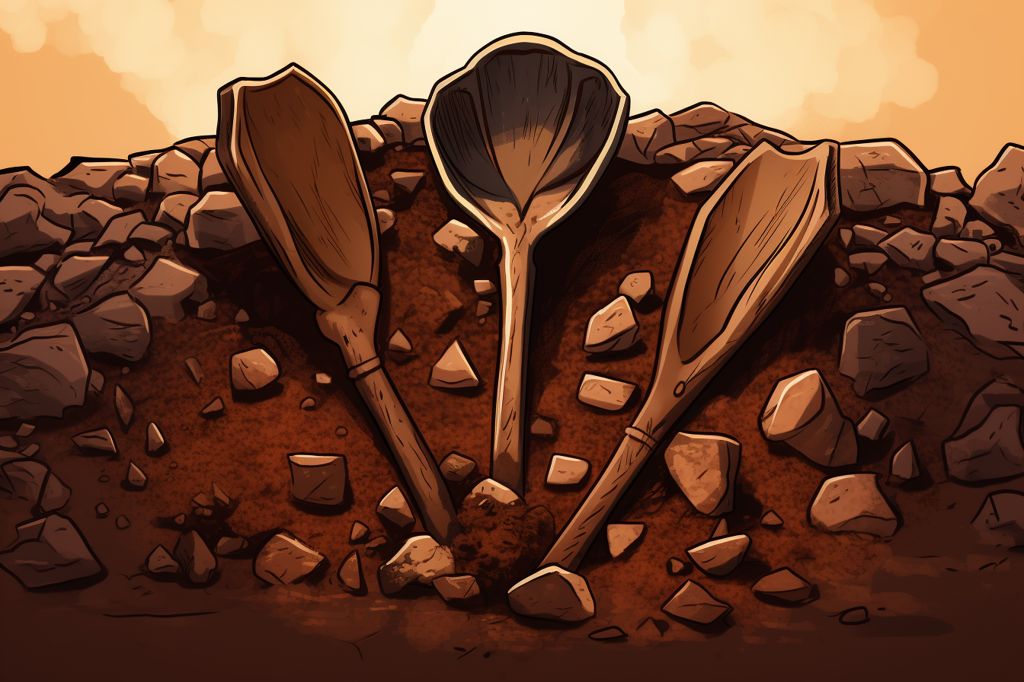Unearthing a Rich Heritage
Surrounded by the magnificent fynbos fields, the Stellenzicht Wine Pod showcases the perfect fusion of history, sustainability, and remarkable winemaking. This unique eco-tasting room, gracefully positioned on crow’s feet without concrete foundations, invites guests to immerse themselves in nature while minimizing their environmental footprint.
The story of Stellenzicht began with a fortunate discovery. While preparing the vineyard’s soil for replanting, the team stumbled upon unusual rocks, later identified as Acheulean hand axes. These artifacts marked a time in the Stone Age when humans began crafting their own tools. The significance of this finding deepened with the discovery of an 1800-dated title deed describing the property as unfit for crops, only suitable for cattle due to the rock abundance. The team realized they stood on land steeped in history and heritage.
Preserving the Land and Embracing Sustainability
Committed to preserving and nurturing Stellenzicht’s diverse microclimate soil pockets, the estate assumed the role of steward, meticulously caring for nature’s annual offerings. Their wines, true embodiments of terroir, attest to this unwavering dedication. As land custodians, the estate wholeheartedly adopts sustainable farming practices that encourage an ecosystem that protects the dragonfly population, fauna, and flora. This sustainability principle permeates their daily operations, reflecting their constant pursuit of equilibrium.
Honoring the land’s history and existing soil compositions, the team devoted considerable effort to identifying various soil types. This knowledge guides the planting of appropriate grape varieties in optimal locations, allowing the vines to thrive in their natural terroir. By observing nature’s signals and adapting farming and winemaking practices accordingly, Stellenzicht reveals the unique character of their soils and terroir in each grape and bottle.
The Wine Pod: A Testament to Sustainability and Adaptation
The dragonfly population’s resurgence on the farm poignantly demonstrates nature’s resilience and adaptability. These remarkable creatures symbolize Stellenzicht’s commitment to adapting in their quest for balance. The Wine Pod, the estate’s brand home, flawlessly exemplifies their sustainability principles. Built with 80% recyclable materials and without concrete foundations, the pod coexists harmoniously with nature, allowing it to thrive.
The Wine Pod’s concept provides visitors with a truly immersive experience, where they can savor the award-winning Stellenzicht wines amidst nature’s beauty. “From the earth, through the berry, to your glass. Enjoy a distinctive range that is none other than Stellenzicht.”
Exceptional Wines and Culinary Delights
Two notable wines in their selection are The Acheulean Red and Chardonnay. The Acheulean Red, a blend of 45% Cabernet Sauvignon, 40% Syrah, and 15% Cinsault, captivates with its audacious entrance. The integration of oak and abundant red and black fruits intertwine in a tapestry of velvety, finely textured tannins, commanding the drinker’s full attention. The Chardonnay offers an all-sensory experience, leading with a medley of fresh stone fruit and citrus notes. The wine’s zesty minerality and vibrant acidity stem from maturation in amphora clay vessels. Subtle oak undertones blend with a lively array of aromatics, resulting in a harmonious and balanced Chardonnay experience.
For classic wine enthusiasts, the reliable trio of Arenite Syrah, Tristone Cabernet Sauvignon, and Silcrete Cinsault stand the test of time. These wines exemplify simplicity and authenticity, providing an experience that connects one directly to the earth.
The Stellenzicht Wine Pod experience extends beyond wine, encompassing a culinary journey. Handcrafted pizzas, designed to complement their wines, are a standout offering. If pizza isn’t on the menu, a crisp glass of Stellenzicht rosé pairs perfectly with a charcuterie board. The smoky assortment of meats and creamy cheeses harmonize beautifully with the wine’s acidity. For dessert, Stellenzicht’s pastel de natas are a must-try. Often described as heavenly, these custard pastries provide a delightful treat, enjoyed with coffee or during a tasting.
Stellenzicht serves as a beacon of sustainable viticulture, a preserver of history, and a provider of top-tier food offerings. The Stellenzicht Wine Pod invites you to embark on an extraordinary journey where history, nature, and wine converge to create an unforgettable experience—one that invigorates the senses and nourishes the soul.
Location: Upper Blaauwklippen Road, Stellenbosch, 7599
Times: Wednesday to Friday, 10 am to 6 pm | Saturday and Sunday, 9 am to 5 pm
Book: dineplan.com
Contact: 021 569 0362 |
Website: stellenzicht.com













